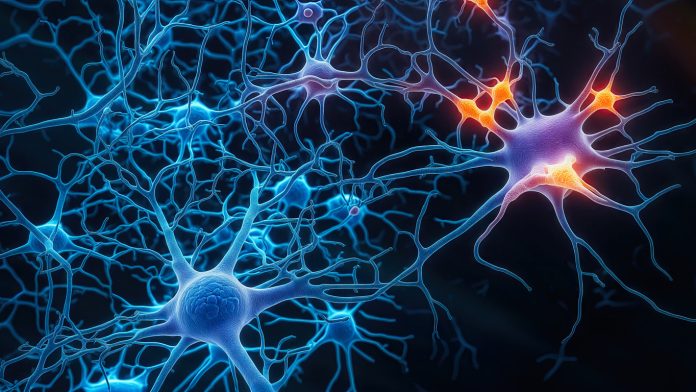Brain disorders pose a significant global health challenge that demands a strong, united response. To tell us what a unified framework that supports an integrated approach to mental and neurological health looks like, we reached out to the European Brain Council (EBC), a network of key stakeholders in the field of brain health
Brain disorders, which include both neurological and mental health conditions, have emerged as the most pressing health challenge of our time, affecting over three billion people globally and representing the leading cause of ill health and disability worldwide. In Europe alone, brain diseases impose an immense social and economic burden, with yearly costs ranging between €800 billion and €1.4 trillion. This burden is not only substantial but also increasing, as our population ages and faces mounting pressures from stress, COVID-19 impacts, climate change, sleep loss, substance misuse, and many other contributing factors.
Globally, brain disorders rank as the second leading cause of death and disproportionately impact low- and middle- income countries, which often lack the resources required for effective prevention, diagnosis, treatment and care. This creates a stark paradox: those most affected are also the least equipped to respond. The urgency and complexity of this crisis call for immediate, coordinated global action to close critical gaps in care and ensure equitable access to brain health services for all.
The WHO framework for action
The World Health Organization (WHO) has taken a leading role in addressing this crisis through its Comprehensive Mental Health Action Plan, adopted in 2012, and its Intersectoral Global Action Plan on Epilepsy and Other Neurological Disorders (IGAP), adopted in May 2022. The IGAP establishes a clear roadmap for addressing neurological disorders and outlines ten specific targets that countries must achieve by 2031, with support from national and international partners alongside the WHO Secretariat. Member States have committed to improving access to treatment and care, enhancing quality of life for people with neurological disorders, their carers and families, and promoting brain health across the entire life course, notably through the implementation of ambitious national strategies.
The time to act is now. With only six years remaining to achieve these ambitious 2031 targets, countries must accelerate their efforts. The window for realistically achieving these goals is rapidly closing, making immediate, coordinated action crucial.
National strategy through brain plans
A brain plan represents a comprehensive national strategy that unifies approaches to neurological and mental health conditions under a single coordinated framework. Traditionally, mental and neurological health have been addressed separately, resulting in duplicated efforts, missed opportunities for coaction and inefficient use of already limited resources. The holistic approach of brain plans emerges from the understanding that mental health and neurological conditions often share common pathways, require similar research methodologies, and benefit from coordinated clinical and policy responses. They encourage shared research initiatives, coordinated clinical protocols and integrated service delivery models, maximising the impact of increasingly limited resources while accelerating progress across the entire spectrum of brain disorders.
Several European countries have already demonstrated leadership in developing comprehensive brain plans, each offering valuable lessons for other nations. Switzerland has established particularly robust efforts, creating integrated frameworks that combine research excellence, clinical innovation and policy leadership. Finland, Italy and Norway have also developed their own brain plans, each tailored to their specific national contexts while maintaining alignment with global best practices and WHO targets. These countries have demonstrated that brain plans can be adapted to different healthcare systems, political structures and cultural contexts while maintaining core principles of coordination and integration. Spain’s recent launch of its national brain plan on May 28 2025, represents a significant milestone in European brain health policy. The initiative is particularly noteworthy for the involvement of the Spanish monarchy, with the Queen’s personal commitment highlighting the highest levels of government recognition of brain health as a national priority. Lastly, several other EU countries are currently working on developing or updating their own comprehensive brain plans, recognising the need to join this coordinated European response to tackle the growing burden posed by brain disorders.
These developments reflect a growing acknowledgement across Europe that improving brain health requires a coordinated, cross-sector approach – one that involves collaboration across all levels of government and whose benefits extend far beyond healthcare systems.
Advocacy beyond brain plans
While national plans are essential, broader advocacy is also needed to ensure brain health remains a top priority on the global health agenda. For instance, initiatives such as OneNeurology, coordinated by the European Federation of Neurological Associations (EFNA), are amplifying this message through partnerships with global stakeholders. OneNeurology brings together patient groups, researchers, professional societies and policymakers to highlight the scale of the burden and to promote solutions. The European Brain Council (EBC) has also been pivotal in supporting the development of national strategies and advancing policy discussions at both the EU and global levels. A Joint Statement released in early 2025 emphasised the importance of fostering basic and translational research, addressing workforce shortages, transitioning to integrated care models, while leveraging collaboration and existing initiatives in the brain health ecosystem. This call for urgent, coordinated action has been echoed at the 79th United Nations General Assembly through the Yaoundé Declaration on Brain Economy, Brain Health & Brain Capital, as well as the Brain Days organised during the Science Summit. It has also been reinforced through engagement in global forums, including the World Economic Forum, G7, and G20 meetings. These collective voices reinforce that addressing brain health is not only a public health imperative, but also a social, political, and economic one.
The need for unified action
While national brain plans and global awareness are fundamental, the European Union must assume a leadership role in ensuring these efforts are coordinated and complementary rather than duplicative. The EU possesses unique capabilities to facilitate knowledge sharing, coordinate research initiatives and ensure that Member States learn from one another’s experiences and innovations. Furthermore, EU coordination ensures that smaller Member States, which may lack the resources to develop comprehensive plans independently, can benefit from the experiences and tools developed by larger nations. Only through such coordinated action can Europe hope to achieve the ambitious WHO targets set for 2031 and address the growing crisis of brain disorders that affect, directly or indirectly, all European citizens. In an increasingly competitive environment where funding for brain research is already insufficient and facing further reductions, duplication of efforts and silos become particularly problematic.
The future of European brain health depends on unified, coordinated action that leverages the collective strengths of all Member States and ensures that no one is left behind in this critical endeavour.











